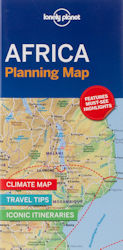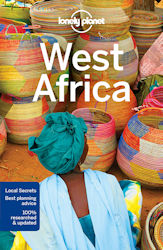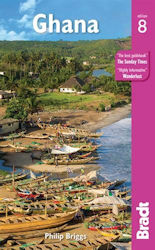Ghana is a West African country with a rich cultural heritage, diverse geography, and a rapidly growing economy. The country, which was formerly known as the Gold Coast, gained independence from British colonial rule in 1957, making it the first African country to do so.
Ghana is located on the Gulf of Guinea and is bordered by Cote d’Ivoire to the west, Burkina Faso to the north, Togo to the east, and the Atlantic Ocean to the south. The country is home to a range of geographical features, including lush forests, rolling hills, and the largest man-made lake in the world, Lake Volta. The climate in Ghana is tropical, with a rainy season from April to October and a dry season from November to March.
Ghana is home to more than 100 ethnic groups, each with its own unique language, culture, and traditions. The largest ethnic groups include the Akan, Ewe, Ga-Adangbe, and Mole-Dagbani. The country is known for its vibrant music and dance traditions, including highlife, hiplife, and azonto, which are popular not only in Ghana but throughout Africa.
Ghana has a strong tradition of storytelling, which is often used to convey cultural values and pass down knowledge from one generation to the next. The country is also known for its rich history, including the ancient kingdoms of Ghana, Mali, and Songhai, which once dominated the region.
Ghana has one of the fastest-growing economies in Africa, driven in part by the country’s rich natural resources, including gold, cocoa, and oil. The government has implemented a range of economic reforms in recent years to promote private sector growth and improve the business environment. The country is also investing in infrastructure development, including roads, bridges, and airports, to support economic growth and attract foreign investment.
Despite these positive developments, Ghana still faces a range of challenges, including high levels of poverty and inequality, limited access to education and healthcare, and environmental degradation.
Ghana is a fascinating country with a rich cultural heritage and a rapidly growing economy. With its diverse geography, vibrant music and dance traditions, and deep sense of history, Ghana has a lot to offer visitors and scholars alike. While the country still faces significant challenges, it is moving in the right direction and is poised to become a leader in the region and on the continent.
Best Time to Visit Ghana
The best time to visit Ghana largely depends on your preferences and the activities you have planned. Generally, Ghana’s climate is hot and humid all year round, but there are two main seasons: the wet season and the dry season.
The wet season in Ghana lasts from April to October, with heavy rainfall and high humidity. The dry season runs from November to March, with cooler temperatures and lower humidity.
If you’re planning to visit Ghana for outdoor activities such as hiking or wildlife viewing, the dry season is generally considered the best time to visit, as the weather is cooler and there is less rainfall. This is also the peak tourist season, so expect higher prices and more crowds.
However, if you’re interested in experiencing Ghana’s vibrant cultural festivals and events, the wet season may be a better time to visit. Many of Ghana’s festivals, including the famous Homowo Festival in Accra, take place during the rainy season.
Regardless of when you choose to visit, be sure to pack light, breathable clothing and plenty of sun screen and insect repellent.
Average Temperature in Ghana
The average temperature in Ghana varies depending on the season and location within the country. Generally, temperatures in Ghana are hot and humid throughout the year, with little seasonal variation.
In the coastal regions, including the capital city of Accra, temperatures typically range from 24°C (75°F) to 31°C (88°F) during the day, with humidity levels often above 80 per cent. Inland regions can be slightly cooler, with temperatures ranging from 20°C (68°F) to 30°C (86°F).
During the dry season, which runs from November to March, temperatures tend to be slightly cooler, with average daytime temperatures ranging from 27°C (81°F) to 30°C (86°F). The wet season, which runs from April to October, tends to be hotter, with average daytime temperatures ranging from 29°C (84°F) to 31°C (88°F).
It’s important to note that temperatures can vary depending on the time of day and the specific location within Ghana. Additionally, certain areas of the country, such as the northern regions, can experience more extreme temperatures, with daytime highs reaching up to 40°C (104°F) during the hottest months.
Credits
Photo: Ada, Ghana. Photo by: Yoel Winkler on Unsplash






